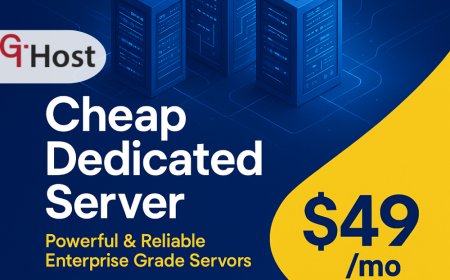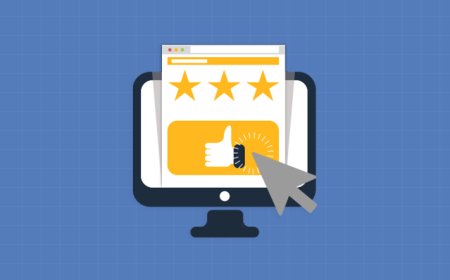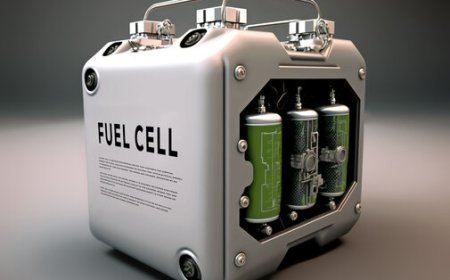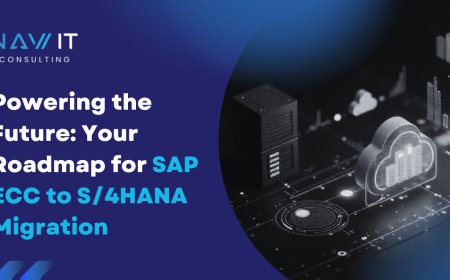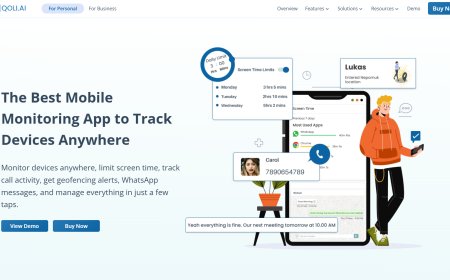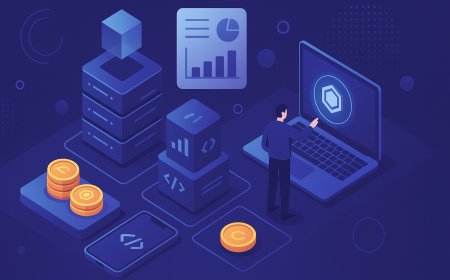How Do You Choose the Right AI Software Development Company?
Learn how to choose the right AI software development company by evaluating expertise, industry experience, technology stack, customization capabilities, and client reviews.

Artificial Intelligence (AI) is rapidly transforming industriesfrom automating processes and optimizing supply chains to enhancing customer experiences and enabling predictive analytics. However, harnessing AI effectively isnt just about technologyits about choosing the right partner to bring your vision to life.
With hundreds of firms offering AI development services, how do you choose the right AI software development company for your business?
The decision can shape your project's success, cost-effectiveness, scalability, and long-term ROI. In this blog, well walk you through a comprehensive guide to evaluating and selecting the ideal AI development partnerwhether youre a startup experimenting with machine learning or an enterprise seeking end-to-end AI transformation.
1.Define Your Business Objectives Clearly
Before reaching out to vendors, clarify what you aim to achieve with AI. Ask:
-
What specific problem are you trying to solve?
-
Do you need a chatbot, recommendation engine, predictive model, or custom AI platform?
-
Is the goal automation, personalization, cost savings, or innovation?
A clear set of objectives will help you filter out companies that offer generic solutions and identify those with relevant domain expertise.
2.Evaluate Technical Expertise and AI Capabilities
Not all software development companies are AI experts. When shortlisting candidates, look for a firm with deep technical knowledge in core AI domains, such as:
-
Machine Learning (ML) and Deep Learning
-
Natural Language Processing (NLP)
-
Computer Vision
-
Predictive Analytics
-
Data Engineering
-
Reinforcement Learning
Ask about their experience with AI frameworks like TensorFlow, PyTorch, Keras, Scikit-learn, OpenCV, and cloud-based AI services (AWS AI, Azure ML, Google AI).
Tip: Request a technical presentation or PoC (Proof of Concept) to gauge their problem-solving approach.
3.Check Industry-Specific Experience
AI solutions are not one-size-fits-all. A recommendation engine for an e-commerce platform is vastly different from a diagnostic model for healthcare.
Look for companies with:
-
Experience in your industry or niche
-
Understanding of industry-specific regulations (e.g., HIPAA in healthcare, GDPR for data privacy)
-
Proven ability to adapt AI for real-world business scenarios
Review case studies or client portfolios to assess their domain relevance and innovation.
4.Assess Their Customization Capabilities
Avoid companies that push plug-and-play or prebuilt models that may not fit your business.
A top-tier AI software development company will:
-
Tailor models based on your business data
-
Build scalable, modular systems that integrate with your existing tools
-
Offer post-deployment tuning and optimization
Custom development ensures greater accuracy, performance, and user satisfaction.
5.Review Past Projects and Case Studies
An AI companys portfolio says a lot about its capabilities. Look for:
-
Diverse, successful implementations in various industries
-
Quantifiable outcomes (e.g., Improved churn prediction accuracy by 30%)
-
Real-world examples of complex AI integrations
Dont just rely on testimonialsask for references or speak directly with past clients to understand the collaboration experience.
6.Evaluate Their Data Handling Expertise
AI is data-driven. Your partner should be skilled at:
-
Data collection and cleaning
-
Feature engineering and preprocessing
-
Building data pipelines
-
Handling both structured and unstructured data
-
Ensuring data privacy and compliance
If your data is fragmented, messy, or siloed, the right AI development company will help you make it model-ready and actionable.
7.Check for MLOps and Deployment Experience
Developing an AI model is only half the battle. Operationalizing it (MLOps) is what makes AI solutions valuable.
Choose a company that can:
-
Deploy models in cloud, on-premise, or hybrid environments
-
Set up CI/CD pipelines for model updates
-
Monitor performance and retrain models over time
-
Provide tools for testing, scaling, and auditing
Robust deployment practices ensure your AI solution is resilient, scalable, and production-ready.
8.Ask About Tools, Tech Stack, and Infrastructure
The tech stack used for your AI project will influence cost, performance, and future compatibility.
Ask:
-
What AI frameworks and tools do they use?
-
Do they support cloud platforms like AWS, Azure, or Google Cloud?
-
Are they comfortable with containerization (e.g., Docker, Kubernetes)?
-
Do they offer support for edge AI or IoT integrations if needed?
The best AI firms are tool-agnostic, selecting the tech stack based on your needsnot just their preference.
9.Review the Team Composition
Top AI software development companies have cross-functional teams, including:
-
Data scientists
-
ML/AI engineers
-
Software developers
-
UX/UI designers
-
Project managers
-
QA specialists
This diversity ensures that the solution is not only intelligent but also user-friendly, secure, and maintainable.
10.Check Communication and Collaboration Approach
Effective communication can make or break an AI project.
Look for companies that offer:
-
Regular sprint reviews and updates
-
Transparent roadmaps and timelines
-
Clear documentation
-
Collaboration tools (Slack, Jira, Trello, etc.)
-
A dedicated point of contact or project manager
The best firms act as strategic partners, not just service vendors.
11.Understand Their Post-Deployment Support
AI solutions require maintenance, monitoring, and retraining over time. Choose a company that provides:
-
Ongoing support and bug fixes
-
Performance monitoring and tuning
-
Model retraining with new data
-
User training and documentation
Long-term support ensures your AI continues to deliver value as your business and data evolve.
12.Evaluate Cost vs. Value
AI development isnt cheapbut neither are bad investments. While its tempting to go for the lowest bidder, remember that:
-
The cheapest option may lack quality, customization, or long-term scalability
-
The most expensive firm may not offer a better fit or faster delivery
Instead, focus on the value offered per dollar spentincluding speed, accuracy, quality, and scalability.
Request detailed quotes with a breakdown of deliverables, timelines, and payment terms to make an informed decision.
13.Ensure They Follow Ethical and Compliant AI Practices
Ethical AI is becoming increasingly important. Your development partner should:
-
Identify and reduce bias in AI models
-
Maintain transparency in how models make decisions
-
Comply with regulations like GDPR, HIPAA, or CCPA
-
Respect data ownership and user privacy
Ask about their data governance policies and audit trails to ensure your solution is responsible and future-proof.
14.Look for a Culture of Innovation
The AI space evolves rapidly. The right partner should stay updated with:
-
The latest research papers and AI advancements
-
Innovations in tools and frameworks
-
Experimental approaches like transformers, LLMs, federated learning, or generative AI
An innovative company will not just deliver whats expected but also anticipate future needs and possibilities.
Final Thoughts
Choosing the right AI software development company is a strategic decision that can define your digital transformation journey. Its not just about technical skillsits about finding a partner who understands your business, speaks your language, and delivers results you can scale and trust.
